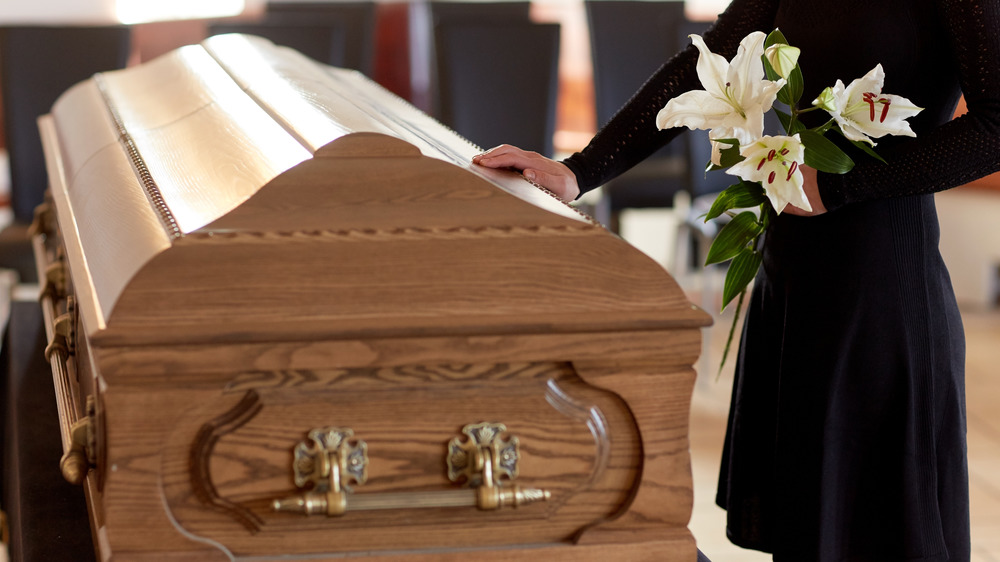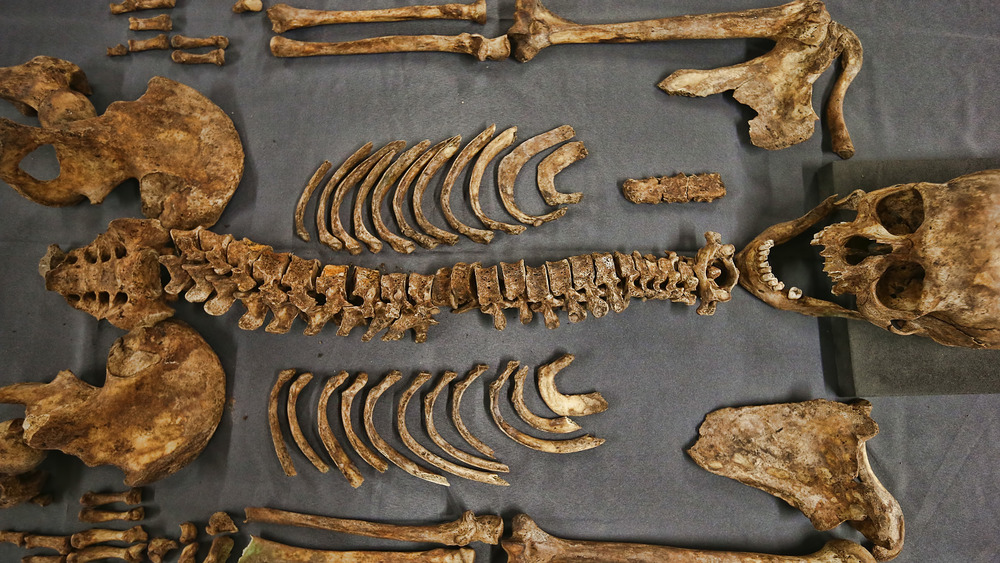What Really Happens To Your Body After 50 Years In A Coffin
Our bodies do stupid things. We might love them, but that doesn't stop them from making fools of us every single day. They grow up, grow old, and start to disintegrate before our eyes. It comes with the luxury of being alive. Eventually, we grow so old and our bodies break down so much that they just kind of shut off. We know it, we despise it, it's a little thing called death.
Now, we can't make any scientific confirmation of a soul or what happens to your consciousness after your physical shell goes belly up, but as luck may have it, we do know what happens to that stupid body of yours after it dies. In short, it turns into the dust and dirt from which it came, and there's a timeline for how it all goes down.
Many factors determine what happens to your lovely corpse after it makes like an Apple product a day past the newest update. If you're cremated, your body is dust in a matter of hours. If you're left thrown to the pigs, there won't be much left after a week. If you're an ancient Egyptian mummy, your corpse will probably be around for centuries to come, but chances are you're not. So, we're going to go to assume your great deadness is chilling in a wooden box six feet below the grass. This is what happens to your meat suit after half a century in a pine box.
Most of your body is gone long before the 50-year mark
Sorry, folks, but once your body's been stewing in a coffin for 50 years, there's really not much of it left. All of your favorite parts have been gone for decades, and the bits that are left aren't much to look at. The process of human decomposition starts almost immediately after death and leaves an unrecognizable lump of desiccated flesh within days or weeks of your demise. But, "what if I'm embalmed?" Sorry, no luck. Embalming isn't going to preserve you much, so let's go ahead and get that one out of the way.
Your body is embalmed to keep you looking humanish for your wake, but that's it. Embalming won't make a substantial difference 50 years down the road. To start with, embalming doesn't slow degeneration for very long at all. According to The Funeral Source, your typical mortuary embalming keeps your corpse looking fresh for a few days to a week, tops, just long enough for family to pay their respects. After that, it's back to decomposition as usual.
The first thing to go when you die, according to The Guardian, is your digestive tract. All the helpful bacteria your gut previously used for digestion no longer has an immune system to keep it in check, so it multiplies, spreads, and feeds on all of your internal organs, starting with the intestines. Flesh slops off from the resulting gas pressure, and now you're practically soup.
50 years in the casket
You've been in the coffin long enough to finally get comfortable. In reality, you have no nerves or tissues left that allow you to feel anything because your gut bacteria has ruined just about everything. So, comfort isn't a problem your decomposed body is going to have. And, thanks to that bacteria, your corpse isn't looking too hot. It's long past the days when anyone is going to see your face anyway, unless you're exhumed or grave robbed for some reason, but if they did catch a glimpse, they certainly wouldn't be able to recognize you.
As Business Insider points out, the only things still hanging about after a half-century are your bones and a bit of skin. The skin isn't really skin after this long, either. It's dried out and wrapped nicely around your skeleton like a mummified cocoon. Thanks to the heavy load of strong, fibrous collagen that makes up your dermis and other structures like tendons and ligaments, you're not just a bleached lump of bones. Instead, you're a picturesque bouquet of desiccated horror suitable for the most terrifying of nightmares, but don't let that worry you. Even that won't last for too much longer. Eventually, the little that remains of your body will return to the earth. If conditions are right, you'll become a fossil to be excavated by future generations. If not, you'll revert to the soil to nurture new life for years to come.


